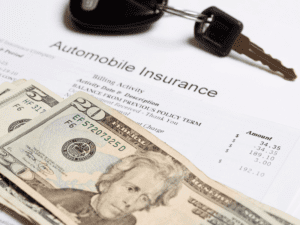
If you are a Michigan driver, you must carry auto insurance. This insurance includes personal injury protection (PIP), or no-fault insurance coverage. Individuals injured in auto accidents in Michigan must first turn to their PIP insurance to cover many of the bills they incur following a crash.
Is Michigan a No-Fault State for Auto Accidents?
 Yes. Michigan is a no-fault state. Under a no-fault auto insurance system, Michigan drivers who suffer injuries in motor vehicle accidents must first turn to their own insurance company to pay medical bills and lost wages rather than file or seek these expenses from the at-fault driver’s insurance. The injured motorist’s own insurance company then pays for covered medical expenses and attendant care, wage loss, and replacement services, regardless of who is at fault for the accident.
Yes. Michigan is a no-fault state. Under a no-fault auto insurance system, Michigan drivers who suffer injuries in motor vehicle accidents must first turn to their own insurance company to pay medical bills and lost wages rather than file or seek these expenses from the at-fault driver’s insurance. The injured motorist’s own insurance company then pays for covered medical expenses and attendant care, wage loss, and replacement services, regardless of who is at fault for the accident.
How Does No-Fault Insurance Work in Michigan?
Who is responsible?
Under the no-fault insurance system in Michigan, your own auto insurance company is primarily responsible for paying for certain expenses and losses after a crash. You may be able to file a third-party injury claim against a negligent party for damages, but only if you suffer an injury that meets a threshold set by Michigan law. A threshold injury must result in a “serious impairment of bodily function,” “permanent serious disfigurement,” or death.
What is covered?
No-fault insurance provides coverage for all reasonable and necessary medical care for injuries you suffered from an auto accident. It also provides reimbursement for lost wages when you miss time from work, replacement services, and attendant care up to your policy limits. Here’s a good summary from the Michigan Department of Insurance and Financial Services.
Recent Michigan No-Fault Insurance Changes
In 2019, Michigan passed a law reforming the state’s no-fault auto insurance industry, affecting policies issued or renewed after July 1, 2020. Some of the most significant changes implemented by the new law include:
- Drivers can now choose between unlimited lifetime medical coverage or a reduced level of PIP coverage such as $250,000 or $500,000 for medical care. A motorist with a qualified health plan or Medicare may opt out of buying PIP medical coverage altogether.
- Injured accident victims whose losses exceed their PIP coverage may file a car accident lawsuit against the at-fault party to recover their excess losses.
- Health care providers now are subject to caps on their charges.
- Auto insurers can no longer use certain non-driving factors to calculate premiums, such as sex, marital status, credit score, homeownership, educational level, or occupation.
- Insurance companies must have rates and policy terms approved by the state before offering them to drivers.
How to Get Care and Compensation From Your Insurance Company
To get medical care and financial compensation for lost wages after a motor vehicle accident, you will need to file an application for benefits from your attorney (or the insurer of a policy held by a member of your household if you don’t have insurance).
If you have more questions about your rights and options in Michigan’s no-fault insurance system or if you need help filing a claim for PIP benefits, contact Christensen Law today for a free initial consultation with a knowledgeable car accident lawyer.






